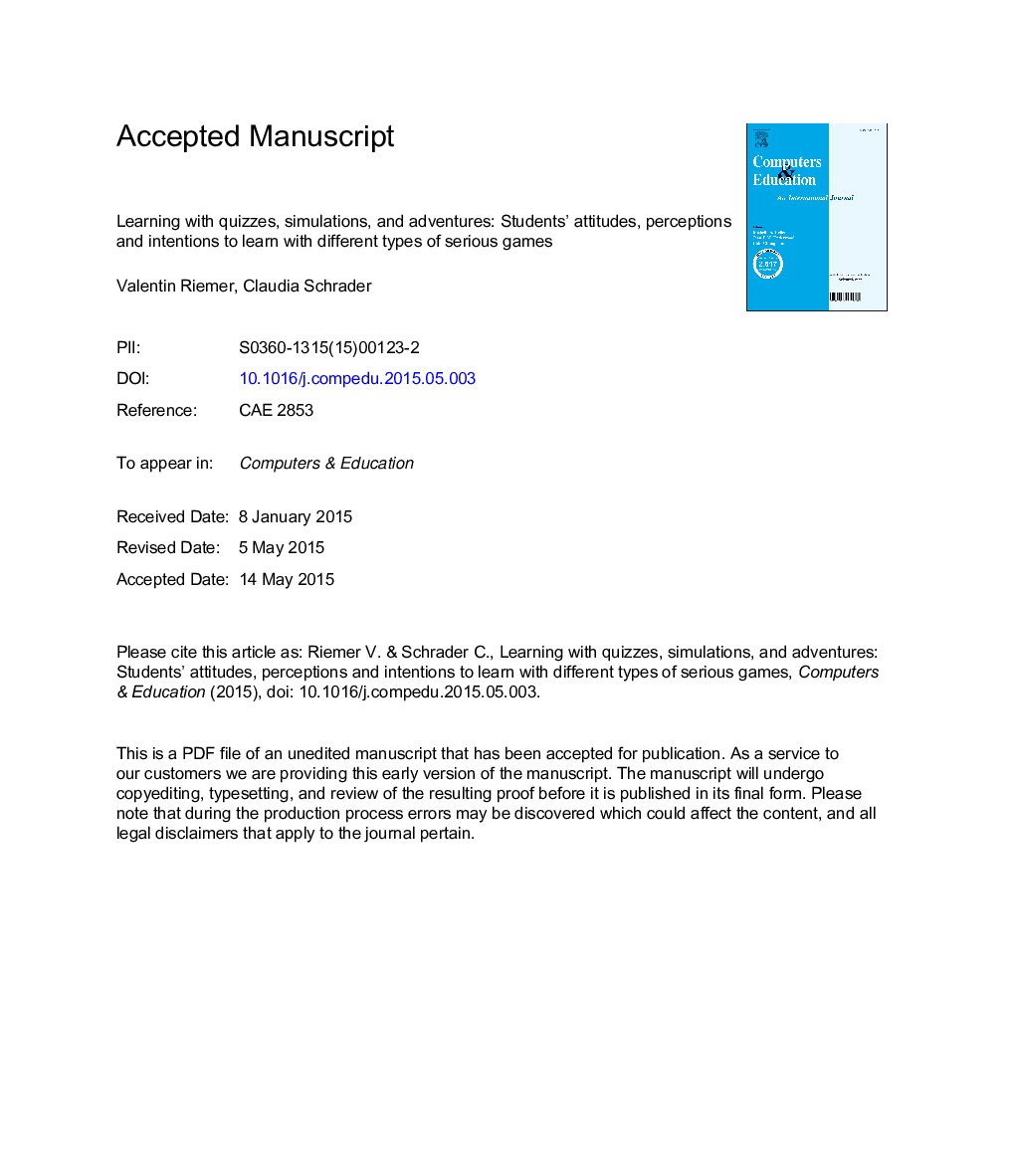| Article ID | Journal | Published Year | Pages | File Type |
|---|---|---|---|---|
| 6834971 | Computers & Education | 2015 | 31 Pages |
Abstract
Students' attitudes, their perceptions of cognitive and affective quality as predictors of attitudes, and the resulting intention toward learning with serious games remains ambiguous, largely due to the use of imprecise measures. The presented studies have aimed to develop and test a measurement of students' attitudes, perceptions, and intentions to learn with serious games in general, and to use the instrument to examine differences for the most common types of serious games, that is quiz, simulation, and adventure. To this end, a pretest (n = 301) and two main studies (Study 1: n = 135, Study 2: n = 375) were conducted. The developed instrument shows high reliability and convergent validity. Results demonstrate positive attitudes, positive cognitive perceptions, and high positive and low negative affective perceptions of students toward learning with serious games in general, as well as with different game types. Findings from a multivariate analysis of variance (MANOVA), however, indicate differences between the three game types that could be related to the perceptions of cognitive and affective quality. Predominately, compared to quizzes and adventures, simulations were perceived as more supportive for the comprehension and application of knowledge while promoting a less positive affect. Additionally, there was a significant difference due to gender. Whereas females reported higher perceptions of negative affective quality compared to males when serious games were addressed in general, answers to questions about the specific game types revealed a more detailed picture. In contrast to previous findings in existing literature, female students reported a more positive attitude, as well as higher perceptions of positive affective quality, than males for all three game types. These results stress the importance of examining the types of serious games separately and considering gender when evaluating students' attitudes and perceptions when learning with serious games.
Related Topics
Social Sciences and Humanities
Social Sciences
Education
Authors
Valentin Riemer, Claudia Schrader,
